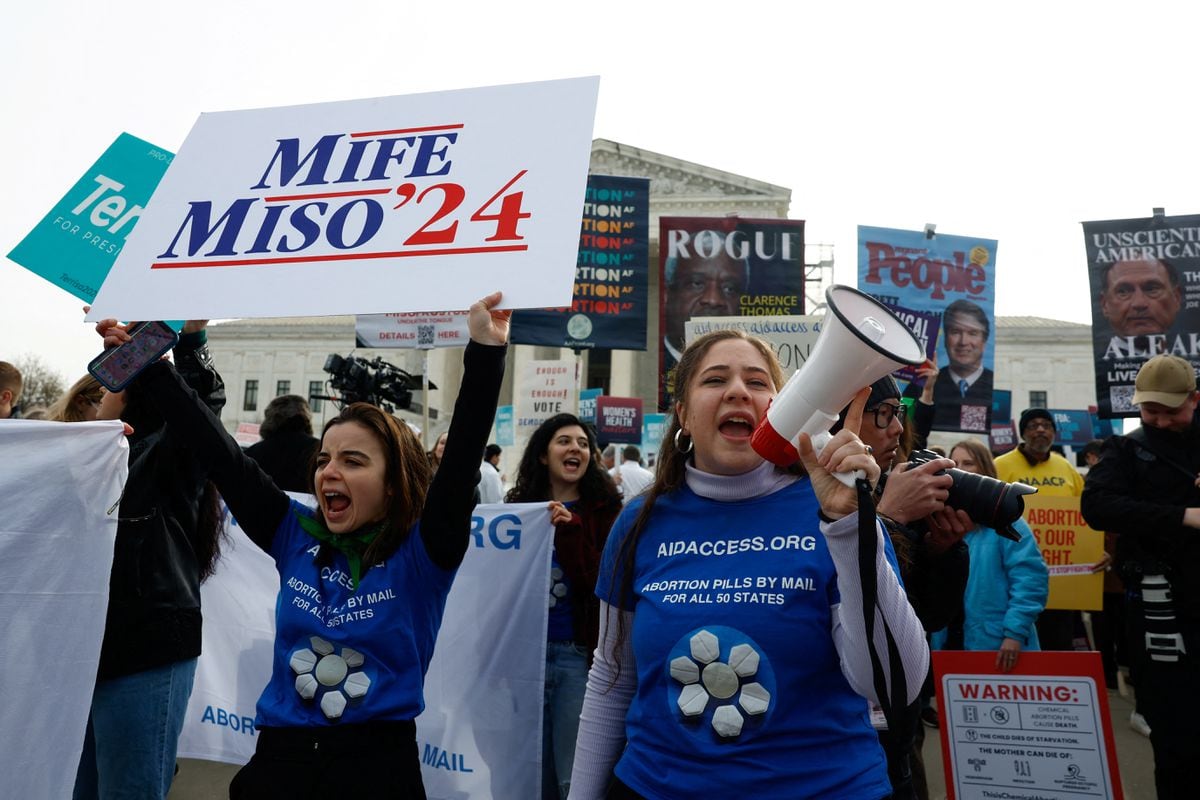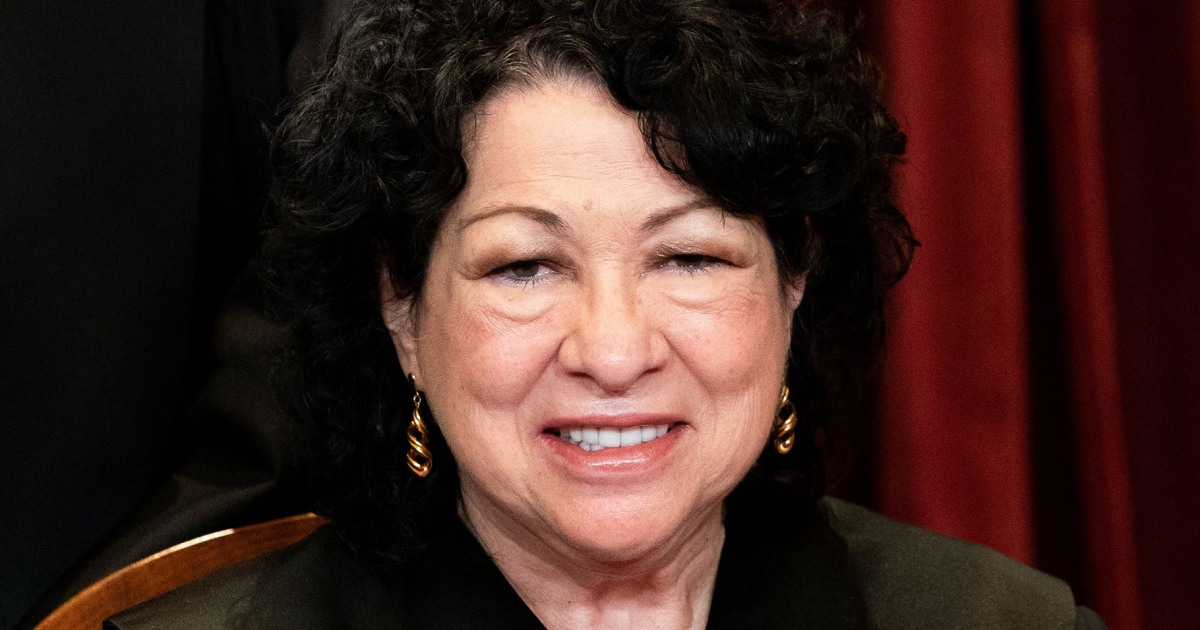WASHINGTON DC.— Amy Coney Barrett took office Tuesday as Supreme Court justice, cementing a conservative majority (6-3) that will shape the country for decades.
Among the pending cases in which she will participate after her confirmation yesterday in the Senate, the judge will hear arguments about Obamacare, immigration, abortion and LGBTQ rights.
Barrett, 48, was officially sworn in for life before Supreme Court Chief Justice John Roberts a day after being confirmed by the Senate with 52 votes (all Republicans) in favor and 48 against (all Democrats).
With her incorporation, just a month after her appointment by President Donald Trump, the judge fills the vacant seat following the death of Judge Ruth Bader Ginsburg on September 18.
Barrett is the third judge appointed by Trump to the Supreme Court, after Brett Kavanaugh in 2018, and Neil Gorsuch in 2017, and is the fifth woman in the 231-year history of the highest court.
Additionally, Trump has installed more than 200 judges in federal courts.
Barrett avoided during his Senate confirmation process from pronouncing on issues such as Obamacare, the right to abortion, same-sex marriage, or the separation of families at the border, but his conservative record offers clues as to how he could act in the highest court.
In the immigration field, for example, the judge has aligned herself with the position of the Administration presided over by Trump in 88% of the cases of the Seventh Court of Appeals, according to an analysis of the Accountable.us website.
Here is a summary of the most relevant cases that will reach the Supreme Court in November, and the role that Barrett could play in them:
Discrimination against the LGBTQ community.—
On November 4, the Court will hear the case
Fulton v.
City of Philadelphia
, after this city eliminated the contract of a Catholic agency that provides foster home services because it rejected applications from same-sex couples.
A lower court determined that Philadephia can continue its policy prohibiting discrimination based on sexual orientation.
The Supreme Court will have to decide whether private agencies that receive public funds can deny services to homosexuals or people of different faiths.
Barrett, a Catholic, has been linked in her private life with groups opposed to equal rights for the LGBTQ community.
Immigrant rights.—
On November 9, the Court will hear an oral hearing in the case of
Niz-Chavez v.
Barr
, who will determine whether the federal government can expedite the deportation of undocumented immigrants by truncating, through court subpoenas, their continued stay in the country.
Currently, the law allows certain foreigners to fight their deportation cases if they have been in the United States for between seven and 10 years of continuous residence, depending on their immigration status.
But, under the rule known as "ticking the clock," the courts can interrupt the accumulation of continuous residence through subpoenas, sometimes without specifying the required documentation.
The Supreme Court must determine which documents can justify "stopping the clock."
Barrett told the Senate that she refused to be "drawn into a debate on immigration policy" by Trump to avoid answering questions about it.
The Future of Obamacare.—
On November 10,
California v.
Texas
, on the requirement within Obamacare that people buy health insurance under penalty of fines from the Internal Revenue Service (IRS).
The Supreme Court already supported that clause of the health reform in 2012, but Congress approved a tax law that left that fine at zero dollars at the end of 2018, which sparked the current dispute.
If judges now find that clause in the 2010 health care reform illegal, it could void it entirely and leave 22 million people now covered under Obamacare without health insurance.
Barrett told the Senate that he is not "hostile" toward Obamacare, but has in the past criticized the program and questioned aspects of the 2012 Supreme Court ruling.
The presidential elections.—
Barrett could also intervene in cases related to the current presidential race, depending on whether Trump decides to challenge the results of the most contested states.
Trump has suggested that he will take the battle to the Supreme Court to demand a recount of the votes if he loses reelection.
[Supreme Court sides with Republicans: Will not allow Wisconsin to count post-election mail ballots]
Under pressure from Democratic senators, Barrett refused to recuse himself from electoral cases and asked that they have more confidence in his professional integrity, because he would not allow himself to be used "as a [chess piece] to say the election."
Additionally, the Supreme Court will decide on key voting-related issues before November 3.
Judge Barrett's confirmation ushers in a new era in the conservative-leaning Supreme Court
Oct. 27, 202003: 32
Progressives alarm
Experts and activists consulted by Noticias Telemundo fear that, given the rosary of pending cases in the Supreme Court, Barrett will abandon the independence he promised both in the Senate and last night during a ceremony in the White House.
Before some 200 guests, Barrett affirmed that, contrary to legislators, federal judges are not in debt to whoever appoints them, promising that they will act independently and free even of their personal preferences.
Still, his conservative record raises suspicions from activists in the immigrant community.
“In the coming years, the Supreme Court will most likely preside over numerous critical cases regarding immigration and immigrant rights, DACA or the Census," said Todd Schulte, president of the FWD.us group. "The most important thing here is that, if Joe Biden wins the presidency, he must prioritize political changes through Congress from the first day of his administration, "he added.
Nicole Melaku, director of the National Alliance for New Americans (NPNA), said Barrett's arrival "
threatens the fundamental rights and livelihoods of millions of Americans."
For his part, Jesse Bless, director of federal litigation for the Immigration Lawyers Association (AILA, in English), refuted that judges can act impartially, because "they are human beings with points of view, prejudices, and baggage" and In this case, Barrett has distinguished himself by his conservatism from the podium.
In June, Barrett made his mark on minority opinion in favor of the public charge rule, which denies permanent residency to those who have received or may need public benefits.
[Trump reimposes public charge rule against immigrants after obtaining judicial green light]
"The majority justices endorsed the [temporary] block on public charge, but she wrote a scathing opinion against it, and it's a good example of her conservative leanings on immigration," Bless said.
As a disciple of the late Conservative Justice Antonin Scalia - for whom she worked from 1998 to 1999 - Barrett adheres to a rigid interpretation of the Constitution and, according to Bless, will apply that ideology to federal statutes.
For this reason, Bless believes that Barrett would support the dismantling of the Deferred Action for Childhood Arrivals (DACA) program, which since 2012 has protected more than 650,000 undocumented youth from deportation.
True to his conservative philosophy, Brett would determine that then-President Barack Obama exceeded his authority by implementing DACA, which remains in effect thanks to a narrow ruling from the Supreme Court.
[The Supreme Court maintains DACA. He considers Trump's decision to cancel Dreamer protection "capricious"]
However, Bless does not agree with the Democratic proposal to expand the number of justices in the Supreme Court to "balance" the equation because, in his opinion, the next presidents would continue to increase the number.
“How far do we stop?
What would be the correct number?
The nine magistrates have functioned well throughout the history of the court, "he explained," Congress is part of the separation of powers and what it must do, in the immigration field, for example, is to pass laws and remove the courts from the debate. political".


/cloudfront-eu-central-1.images.arcpublishing.com/prisa/3F3EHAP7NYDCD7NIOIZLOQJFPI.jpg)




/cloudfront-eu-central-1.images.arcpublishing.com/prisa/OADNJHA33STDSSDCLLQNLNFBWQ.jpg)







